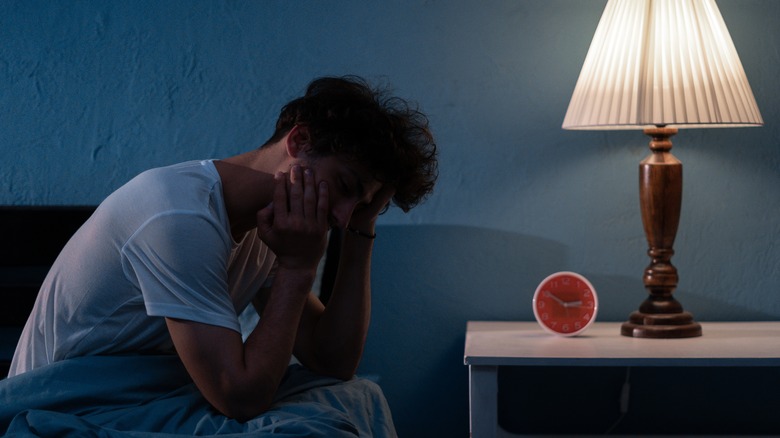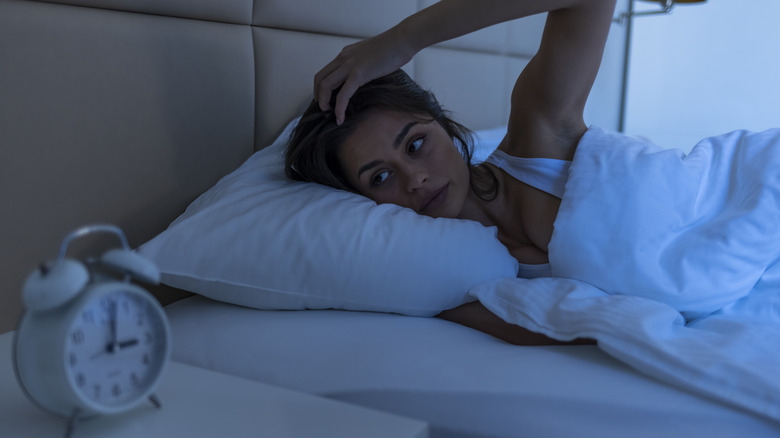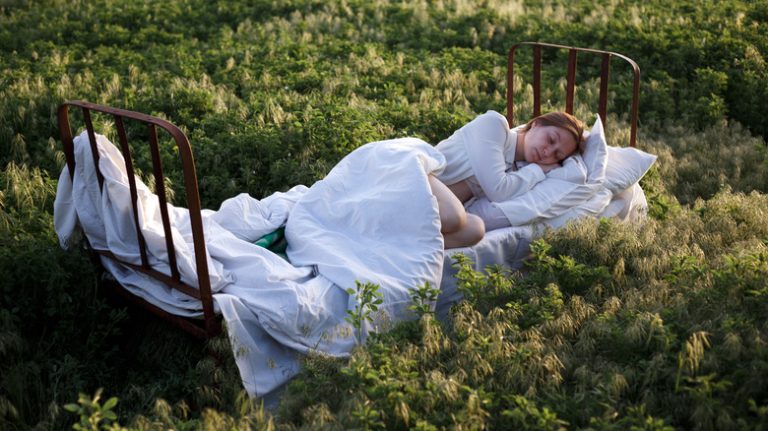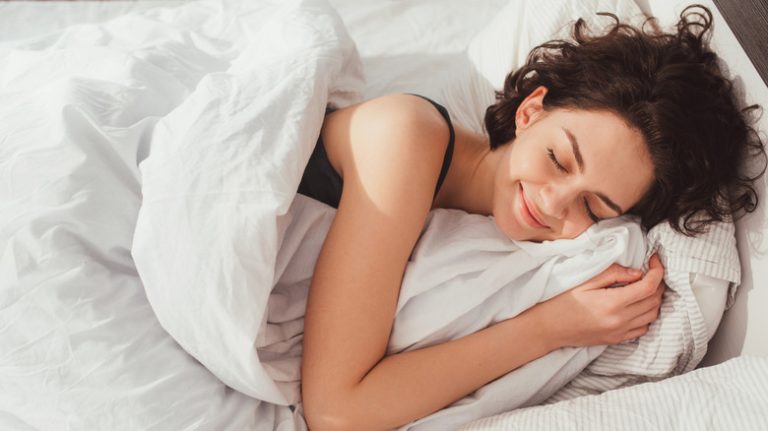When you go to sleep at night, you are anticipating 7 to 9 hours of (hopefully uninterrupted) rest until it’s time to wake up and face another day. But this is not always the case, like when you keep getting out of bed for bathroom breaks in the middle of the night.
Sometimes, the cause is just that you had alcohol, coffee, or tea too close to bedtime, and you’re paying the price of these beverages’ diuretic effect. But there is also one medical condition that causes nocturia (the medical term for waking up regularly to urinate at night), and that’s obstructive sleep apnea (OSA). Although it is possible to have an overactive bladder (OAB) and sleep apnea without them being related, there is some science to say that the two can be connected (per Medical News Today), like a 2024 study published in the Turkish Archives of Otorhinolaryngology.
Obstructive sleep apnea is a sleep disorder that mainly affects a person’s breathing while they sleep; this is why someone with the health condition is more likely to snore as well. In addition to pauses in breathing and snoring, people with obstructive sleep apnea experience other symptoms like fatigue during the day (because of a lack of quality sleep), headaches, trouble focusing, night sweats, teeth grinding, heartburn, choking or gasping at night, memory issues, and mood swings.
How is sleep apnea connected to frequent night-time urination?

Not getting enough oxygen at night and the release of certain hormones are thought to be some reasons why people with OSA wake up regularly to use the bathroom at night (via Sleep Apnea.org). Nocturia is prevalent in about 50% of people with this sleep disorder.
According to Dr. Brandon R. Peters, a sleep medicine specialist at Pulmonary and Sleep Associates of Marin in Novato, California, the connection between the need to pee frequently at night and OSA is an often-neglected one, even in medical circles (per HuffPost). People often turn to explanations like an enlarged prostate, consuming too much water before bed, a hyperactive bladder, incontinence, and menopause as reasons, but overlook this important medical condition.
“The body normally releases anti-diuretic hormone (ADH) in sleep to prevent needing to wake to urinate. It works to shut down the kidneys, preventing movement of fluids from the blood vessels to the bladder,” explained the sleep medicine specialist. For people with OSA, this hormone release is disrupted, leading to more pee accumulating in the bladder and the need to urinate several times in the night.
When you should see a doctor about sleep apnea-induced nocturia

Keep an eye out for symptoms of OSA. Even if you suspect that there are other things that could be ruining your sleep, it doesn’t hurt to get screened for OSA if you notice the signs. Also, because of how common frequent peeing at night is with people who have OSA, experts recommend talking about both concerns when you visit your doctor. Try not to be embarrassed about bringing it up.
As explained by Dr. Brandon R. Peters to HuffPost, the urge to pee at night can be quickly reversed by continuous positive airway pressure (CPAP) machines (an important treatment for OSA). “CPAP delivers a constant flow of air through a face mask that keeps the airway open and prevents the associated changes.”
Good sleep is a precursor to a lot of things. It helps regulate your hormones, keeps your metabolism healthy, improves your immune system’s health, and keeps your brain in good shape. It also wards off medical conditions like heart disease, high blood pressure, stroke, and obesity. If something is making you wake up at absurd hours to use the bathroom, you’re better off knowing what it is and treating it.




